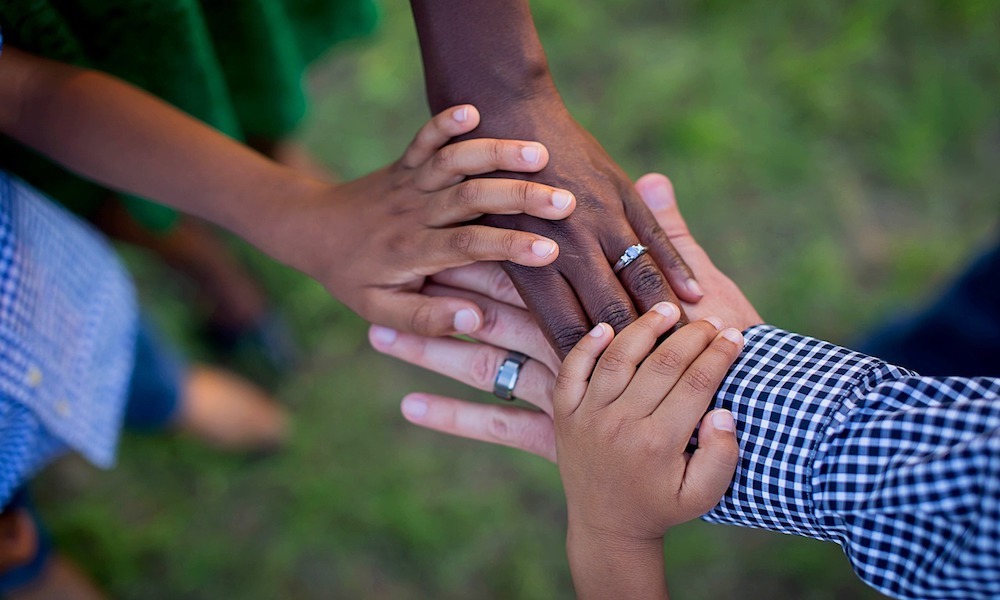
I have never actually heard a brown girl tell me that her family was unperturbed by her dating someone of a different race or ethnicity. There are many nuances to an interracial relationship, especially when external forces like family and friends can influence it tremendously. However, conversation and open dialogue with your significant other, as well as those involved, can be really valuable.
It’s important to talk to family members sooner rather than later about being in an interracial relationship.
Yeah, I know. It’s one of the most terrifying moments in a brown girl’s life telling her parents that she has decided to look outside of the South Asian Diaspora for love.
In my case, within a month of dating an Irish-Filipino, Catholic man, I told my Hindu- Indian family that I wanted to be in a long-term relationship with him. I was lucky to have supportive grandparents who persuaded my father into understanding that accepting the relationship was essential to my happiness and nothing else should matter. They made mistakes in their youth, putting stability and status before their children’s wishes in terms of love and marriage. My grandmother refused to have history repeat itself in the parivaar (family).
It’s important to remember that a little pushback from parents doesn’t always equal rejection of your relationship. Honestly, they might want more answers, see how serious you are about your decision and that you’re not just dating someone on a whim. It’s their weird way of protecting their children from “outsiders” because they feel that’s what needs to be done.
However, letting your parents know that you are always willing to communicate when they are ready will show you have consideration for them.
Don’t shy away from having conversations about religion and politics.
Certain views don’t have to make or break a relationship, but they’re always going to be subjects we butt heads over. If you’re in an interracial relationship and you don’t have the same religion (or a religion at all), being open about the values you hold will be less strenuous in the long run.
It’s important to have uncomfortable conversations about cultural dynamics and effective arguments about politics with your partner because those are the moments that can create mutual understanding, whether you agree with the ideas or not.
My partner was brought up Catholic but doesn’t follow that religion today. He likes learning about Hinduism and is not opposed to visiting temples with my family. We’re not always on the same page when it comes to conservative or liberal values, but this has never really bothered us because we will always voice our opinions about it.
If you want children, it’s also important to talk about what both you and your partner would like to teach them in terms of cultural and religious values, if any, and whether there will be contradictions in your future relationship with family members.
How can your families communicate properly if they don’t share the same mother tongue?
If both families speak different languages and English isn’t their forte, you and your partner will be stuck as the middlemen trying to translate and decipher it all. This can make it difficult to have heavier conversations, but a good strategy would be having both families find things they have in common, like their children, for example. Talking about their kids, work life and favorite foods are great places to start.
My boyfriend and I were so nervous for our families to meet in case they said something inappropriate or insulted each other’s traditions without realizing it. That didn’t actually happen, and all of our fears were put to rest once the families actually met and spent time talking about their kids and favorite restaurants they like to visit. There was the occasional dad joke that made me shush my father before he embarrassed me any further. My boyfriend high-fived him, anyways. He’s a lover of bad jokes and terrible puns.
Continuing conversations and having complete openness in an interracial relationship will create an environment where feelings are recognized and respected. If you ever feel like you’re alone, don’t worry, you’re not! You’ll find that your friends, acquaintances, people online and even those you meet at a party you were dragged to have dealt with the fear of rejection from family. All families are crazy, so whether your relationship is diversely based on culture, ethnicity, sexuality or religion, just keep an open line of communication and understanding with those around you, no matter how arduous it might seem at first.
Congratulations on finding the fulfilling and loving relationship you had always hoped for. Support each other in every possible way you can. All the best to you and your lovely families!




